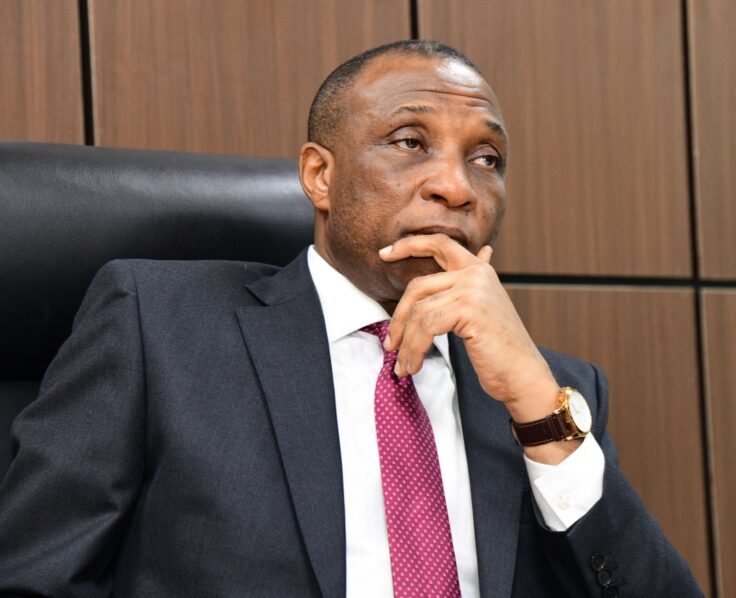
• Iyaloja General urges traders to maintain minimal profit margins
•Traders blame rising prices on logistics, road taxation by touts, others
The Federal Competition and Consumer Protection Commission (FCCPC) has insisted on an end to exploitative pricing with a stern warning to businesses engaging in such sharp practices to desist henceforth.
The Commission urged businesses to prioritise fairness as consumers continue to grapple with the rising cost of living. FCCPC made the call at a one-day stakeholders’ engagement forum on exploitative pricing in Lagos, yesterday.
Indeed, as inflationary pressures remain unabated and persistence in the increase in the price of Premium Motor Spirit (PMS) due to supply chain disruptions, many Nigerians are facing increased financial strain, with prices for essential goods and services skyrocketing across various sectors.
Executive Chairman and Chief Executive Officer of FCCPC, Tunji Bello, who spoke, emphasised that price gouging, fixing, or other exploitative practices during this time was not only unethical but also a violation of consumer protection laws.
Bello stressed that while factors such as increase in PMS pump price, and supply chain disruptions play a role in driving up costs, businesses must still maintain transparency and fairness, sustaining operations and ensuring consumers are not unduly burdened.
He emphasised that the commission doesn’t have the power for price control, but rather has an engagement on fair prices in the market. He added that the growing trend of unreasonable pricing of goods and the practice of market association needs to be addressed.
According to him, from the commission’s investigation, it was discovered that some traders formed a cartel in the market and put their wares in the form of ridiculous membership fees intended to ensure price fixing in the market. He noted that such practices are against the law and constitute some of the offenses the commission is against.
“We are not here to pitch prices or debate with any law-abiding trader or manufacturer how to relate to the market. Rather, ours is to ensure there is no price trickery or gang up in trades and transactions. As the Commission, let me also reiterate that we are not acting out of a green wave. Indeed, we are carrying out extensive market surveys across the country, and our findings were quite disturbing. We identified the patterns of price fixing perpetrated by some market associations, price gouging, and other anti-consumer practices,” he said.
He added that the margins in the price of imported goods are very disproportionate in many cases as locally produced goods are extensively inflated. He noted that some players are engaging in hoarding of grains to create artificial scarcity, thereby distorting the market, and resulting in unduly high prices of food items.
“Here in Lagos, for instance, we found that one supermarket on the island displayed a blender for N950,000, the same blender that was on sale at the popular supermarket in the U.S. for $89, which is equivalent to about N140,000, if you add logistics and other taxes to it, let’s say N250,000, nobody will complain, it’s still fair but to say N950,000 for what you bought for N140,000, I think that is excessive, clearly, such pricing model is excessive and unacceptable, we cannot deny that the removal of the fuel subsidy has brought some discomfort, not as we quite recognise that an unfavorable exchange rate has negatively impacted the cost of production in local currencies but nothing justifies selling a blender sold for N140,000 for N950,000 in Nigeria
“In our investigation, we also discovered that some traders formed a cartel in the market and put their wares in the form of ridiculous membership fees intended to ensure price fixing in the market,” he said.
On her part, Iyaloja General of Nigeria, Folashade Tinubu-Ojo, urged its members to maintain minimal profit margins on commodities. She mentioned that though, the prices of commodities are primarily determined by the market forces of demand and supply as the current reality of socio-economic downturn in the world requires interventions, particularly in Nigeria. Tinubu-Ojo emphasised that the African cultural spirit centers around empathy for the weak and providing support for the frail and the downtrodden.
“It is a fact that transporting goods and farm produce from the point of harvest to the market attracts more costs. In terms of logistics, in some markets, some traders are helpless. But we always emphasize this at our meetings that we need to be considerate. Not around this time, even if we have been getting 50 per cent profit on our businesses or products in the past, this time around the situation is tense and bad within the country, and we have to ensure that we get minimal profit on our commodities,” she said.
The Director-General, Nigerian Association of Chambers of Commerce, Industry, Mines, and Agriculture, (NACCIMA), Olusola Obadimu, said people worry mainly about the lack of stability in economic indices like current rates, oil prices, and electricity tariffs among others.
“But I believe that right now, oil prices, for instance, shouldn’t get worse than it is now, because they are now close to the market rate globally, provided the naira does not devalue further, because it is a bearer, and it is full-time dependent. So, if the naira does not devalue further, it is likely to stabilise at this rate, and probably get better shortly,” he said.






